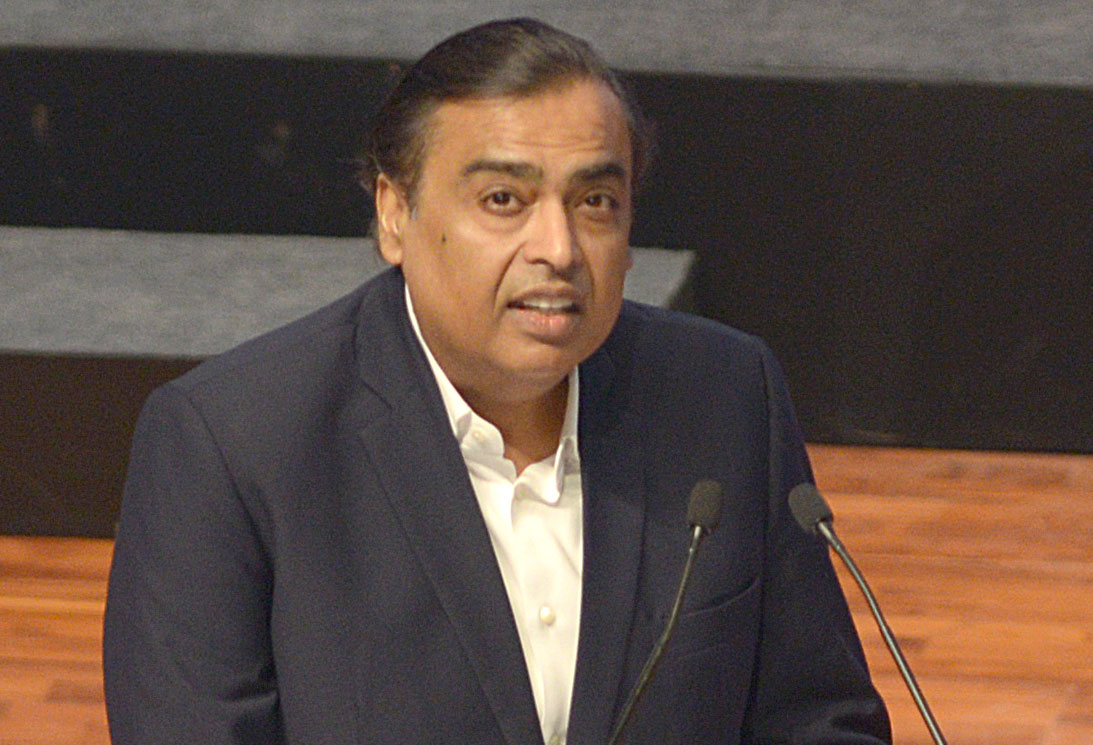A Dutch judge has released three former employees of a local firm suspected of laundering $1.2 billion through over-invoicing services and works rendered for a gas pipeline built by a unit controlled by Mukesh Ambani, a charge vehemently denied by Reliance Industries. The trio were arrested by Dutch investigators and released on Friday after three days.
East West Pipeline Ltd (EWPL), which was previously known as Reliance Gas Transportation Infrastructure Ltd (RGTIL), denied any money was laundered at any stage during implementation and that the higher capital cost of a pipeline would result in a higher tariff for users for receiving natural gas through the line.
Reliance Industries, too, denied any link to the pipeline company saying it neither set up any gas pipeline in 2006 nor did it have contracts with any Netherlands company for any gas line. Last month, Canadian investor Brookfield-led India Infrastructure Trust (InVIT) agreed to pay Rs 13,000 crore to buy the East West Gas pipeline that transports RIL’s eastern offshore KG-D6 gas from the east coast to customers in the west.
The Fiscal Intelligence and Investigation Service & Economic Investigation Service (FIOD-ECD) arrested three former employees of Dutch pipeline firm A Hak, NL, alleging that an estimated $1.2 billion in profits earned by the company through over-invoicing services and works rendered to RGTIL were “creamed off” to Singapore-based Biometrix Marketing Ltd, a company they claim is allegedly linked to Reliance.
An AFP report, quoting a statement issued by the public prosecutor’s office, said the company acted as “invoice duplicator” to enable the Indian firm to claim costs twice from gas customers. “It is suspected that the Dutch company used to increase the amounts on the invoices for the materials and services supplied,” it said.
“The ‘profits’ earned in this way were subsequently creamed off via the Dutch company,” it said.
The gains were then transferred via a complex web of businesses based among others in Dubai, Switzerland and the Caribbean, before eventually ending up at a business owned by the Indian company in Singapore, AFP said, adding the suspects allegedly received payments of up to $10 million for their involvement.
“In this case, Dutch companies are suspected of assisting an Indian client to launder suspected illegal earnings,” AFP quoted the statement as saying. The real losers “were probably individual citizens in India” as the cost of production of gas is passed onto the consumer, it added.
EWPL said the pipeline project was built by a privately owned entity, in which promoters’ private funds were invested. “No public funds were invested and all borrowings from banks, financial institutions and others have been fully repaid by the promoters. We strongly deny any suggestion of any money having been laundered at any stage during the implementation of the project. Suggestion of such impropriety lacks logic and economic rationale and is emphatically denied,” EWPL said in a statement.
The pipeline project, it said, was implemented by a consortium of independent contractors from India, China, Russia and West Asia.
“A Hak, Middle East was one of the contractors. The project was completed expeditiously at globally competitive costs which have been benchmarked by reputed independent agencies.” EWPL said that the suggestion that a higher capital cost would result in higher tariff was “wrong” and “not in line with the applicable tariff regulations in India”.
“As a matter of policy and good governance, at all times we have co-operated with the statutory authorities and will continue to do so. It is clear from the media reports that the investigation has proceeded on assumptions and presumptions without factual basis. We once again strongly deny suggestions of any impropriety,” EWPL said.
In a statement, RIL said neither it nor any of its subsidiaries set up any gas pipeline in 2006.
Also, it never had any contracts with any Netherlands company for setting up of any gas pipeline and hence the report cannot relate to RIL.











